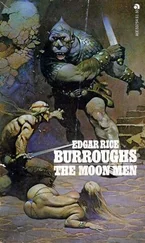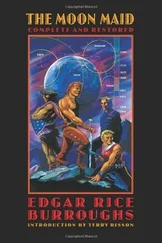Edgar Burroughs - The Lost Continent
Здесь есть возможность читать онлайн «Edgar Burroughs - The Lost Continent» весь текст электронной книги совершенно бесплатно (целиком полную версию без сокращений). В некоторых случаях можно слушать аудио, скачать через торрент в формате fb2 и присутствует краткое содержание. Жанр: Фантастика и фэнтези, на английском языке. Описание произведения, (предисловие) а так же отзывы посетителей доступны на портале библиотеки ЛибКат.
- Название:The Lost Continent
- Автор:
- Жанр:
- Год:неизвестен
- ISBN:нет данных
- Рейтинг книги:4 / 5. Голосов: 1
-
Избранное:Добавить в избранное
- Отзывы:
-
Ваша оценка:
- 80
- 1
- 2
- 3
- 4
- 5
The Lost Continent: краткое содержание, описание и аннотация
Предлагаем к чтению аннотацию, описание, краткое содержание или предисловие (зависит от того, что написал сам автор книги «The Lost Continent»). Если вы не нашли необходимую информацию о книге — напишите в комментариях, мы постараемся отыскать её.
The Lost Continent — читать онлайн бесплатно полную книгу (весь текст) целиком
Ниже представлен текст книги, разбитый по страницам. Система сохранения места последней прочитанной страницы, позволяет с удобством читать онлайн бесплатно книгу «The Lost Continent», без необходимости каждый раз заново искать на чём Вы остановились. Поставьте закладку, и сможете в любой момент перейти на страницу, на которой закончили чтение.
Интервал:
Закладка:
"It's drifting," said Taylor . "I see no one in it."
I was stripping off my clothes, and Delcarte soon followed my example. I told Taylor to remain on shore with the clothing and rifles. He might also serve us better there, since it would give him an opportunity to take a shot at Snider should the man discover us and show himself.
With powerful strokes we swam out in the path of the oncoming launch. Being a stronger swimmer than Delcarte, I soon was far in the lead, reaching the center of the channel just as the launch bore down upon me. It was drifting broadside on. I seized the gunwale and raised myself quickly, so that my chin topped the side. I expected a blow the moment that I came within the view of the occupants, but no blow fell.
Snider lay upon his back in the bottom of the boat alone. Even before I had clambered in and stooped above him I knew that he was dead. Without examining him further, I ran forward to the control board and pressed the starting button. To my relief, the mechanism responded—the launch was uninjured. Coming about, I picked up Delcarte. He was astounded at the sight that met his eyes, and immediately fell to examining Snider's body for signs of life or an explanation of the manner in which he met his death.
The fellow had been dead for hours—he was cold and still. But Delcarte's search was not without results, for above Snider's heart was a wound, a slit about an inch in length—such a slit as a sharp knife would make, and in the dead fingers of one hand was clutched a strand of long brown hair—Victory's hair was brown.
They say that dead men tell no tales, but Snider told the story of his end as clearly as though the dead lips had parted and poured forth the truth. The beast had attacked the girl, and she had defended her honor.
We buried Snider beside the Rhine, and no stone marks his last resting place. Beasts do not require headstones.
Then we set out in the launch, turning her nose upstream. When I had told Delcarte and Taylor that I intended searching for the girl, neither had demurred.
"We had her wrong in our thoughts," said Delcarte, "and the least that we can do in expiation is to find and rescue her."
We called her name aloud every few minutes as we motored up the river, but, though we returned all the way to our former camping place, we did not find her. I then decided to retrace our journey, letting Taylor handle the launch, while Delcarte and I, upon opposite sides of the river, searched for some sign of the spot where Victory had landed.
We found nothing until we had reached a point a few miles above the spot where I had first seen the launch drifting down toward us, and there I discovered the remnants of a recent camp fire.
That Victory carried flint and steel I was aware, and that it was she who built the fire I was positive. But which way had she gone since she stopped here?
Would she go on down the river, that she might thus bring herself nearer her own Grabritin, or would she have sought to search for us upstream, where she had seen us last?
I had hailed Taylor, and sent him across the river to take in Delcarte, that the two might join me and discuss my discovery and our future plans.
While waiting for them, I stood looking out over the river, my back toward the woods that stretched away to the east behind me. Delcarte was just stepping into the launch upon the opposite side of the stream, when, without the least warning, I was violently seized by both arms and about the waist—three or four men were upon me at once; my rifle was snatched from my hands and my revolver from my belt.
I struggled for an instant, but finding my efforts of no avail, I ceased them, and turned my head to have a look at my assailants. At the same time several others of them walked around in front of me, and, to my astonishment, I found myself looking upon uniformed soldiery, armed with rifles, revolvers, and sabers, but with faces as black as coal.
8
Delcarte and Taylor were now in mid-stream, coming toward us, and I called to them to keep aloof until I knew whether the intentions of my captors were friendly or otherwise. My good men wanted to come on and annihilate the blacks. But there were upward of a hundred of the latter, all well armed, and so I commanded Delcarte to keep out of harm's way, and stay where he was till I needed him.
A young officer called and beckoned to them. But they refused to come, and so he gave orders that resulted in my hands being secured at my back, after which the company marched away, straight toward the east.
I noticed that the men wore spurs, which seemed strange to me. But when, late in the afternoon, we arrived at their encampment, I discovered that my captors were cavalrymen.
In the center of a plain stood a log fort, with a blockhouse at each of its four corners. As we approached, I saw a herd of cavalry horses grazing under guard outside the walls of the post. They were small, stocky horses, but the telltale saddle galls proclaimed their calling. The flag flying from a tall staff inside the palisade was one which I had never before seen nor heard of.
We marched directly into the compound, where the company was dismissed, with the exception of a guard of four privates, who escorted me in the wake of the young officer. The latter led us across a small parade ground, where a battery of light field guns was parked, and toward a log building, in front of which rose the flagstaff.
I was escorted within the building into the presence of an old negro, a fine looking man, with a dignified and military bearing. He was a colonel, I was to learn later, and to him I owe the very humane treatment that was accorded me while I remained his prisoner.
He listened to the report of his junior, and then turned to question me, but with no better results than the former had accomplished. Then he summoned an orderly, and gave some instructions. The soldier saluted, and left the room, returning in about five minutes with a hairy old white man—just such a savage, primeval-looking fellow as I had discovered in the woods the day that Snider had disappeared with the launch.
The colonel evidently expected to use the fellow as interpreter, but when the savage addressed me it was in a language as foreign to me as was that of the blacks. At last the old officer gave it up, and, shaking his head, gave instructions for my removal.
From his office I was led to a guardhouse, in which I found about fifty half-naked whites, clad in the skins of wild beasts. I tried to converse with them, but not one of them could understand Pan-American, nor could I make head or tail of their jargon.
For over a month I remained a prisoner there, working from morning until night at odd jobs about the headquarters building of the commanding officer. The other prisoners worked harder than I did, and I owe my better treatment solely to the kindliness and discrimination of the old colonel.
What had become of Victory, of Delcarte, of Taylor I could not know; nor did it seem likely that I should ever learn. I was most depressed. But I whiled away my time in performing the duties given me to the best of my ability and attempting to learn the language of my captors.
Who they were or where they came from was a mystery to me. That they were the outpost of some powerful black nation seemed likely, yet where the seat of that nation lay I could not guess.
They looked upon the whites as their inferiors, and treated us accordingly. They had a literature of their own, and many of the men, even the common soldiers, were omnivorous readers. Every two weeks a dust-covered trooper would trot his jaded mount into the post and deliver a bulging sack of mail at headquarters. The next day he would be away again upon a fresh horse toward the south, carrying the soldiers' letters to friends in the far off land of mystery from whence they all had come.
Читать дальшеИнтервал:
Закладка:
Похожие книги на «The Lost Continent»
Представляем Вашему вниманию похожие книги на «The Lost Continent» списком для выбора. Мы отобрали схожую по названию и смыслу литературу в надежде предоставить читателям больше вариантов отыскать новые, интересные, ещё непрочитанные произведения.
Обсуждение, отзывы о книге «The Lost Continent» и просто собственные мнения читателей. Оставьте ваши комментарии, напишите, что Вы думаете о произведении, его смысле или главных героях. Укажите что конкретно понравилось, а что нет, и почему Вы так считаете.








